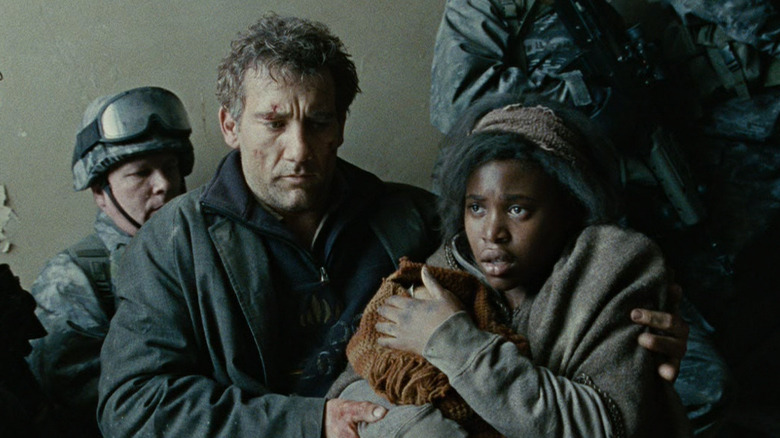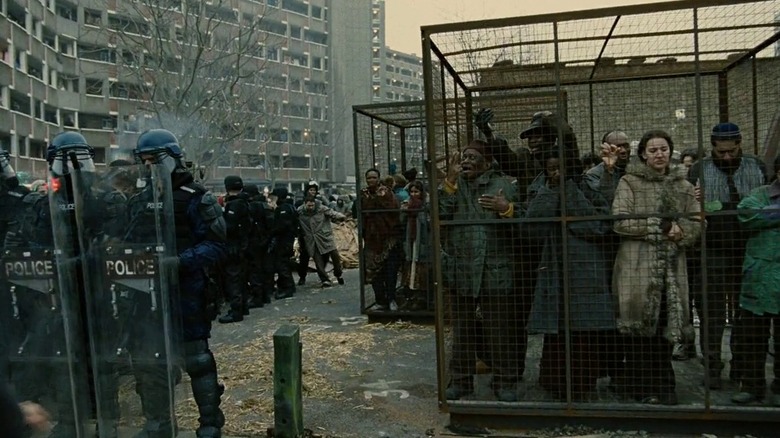
There've been plenty of dystopian movies over the past few decades, but Alfonso Cuarón's not-particularly-faithful adaptation of P.D. James' novel "Children of Men" is one of the best. The 2006 film takes place in Britain in 2027, in a world where a mass infertility plague has led to no children being born in over 18 years. It's a dark, beautifully shot, emotionally draining film, one that serves as a highlight of Clive Owen' already impressive acting career.
Owen, who plays main character Theo, has nothing but good things to say about the direction Cuarón took with the source material. "Alfonso, I think, with this movie has been very clever," he said. "He's actually using a film set 30 years in the future as an excuse to talk about present worries, concerns, and fears."
This is nothing new for the genre; most sci-fi writers use its speculative concepts to talk about present day issues allegorically, not just in an attempt to "predict" the future. But what makes "Children of Men" interesting to Owen is how, minus a few minor advances in technology, it doesn't actually look like the future at all:
"If you look at the opening scene, my character walks into a café, walks outside, and a bomb goes off... That's the world we're in. That's not futuristic, you know... There are endless images in this movie that we've seen that we are sort of already familiar with and he's obviously taken it further than the real thing but I just don't think it's...it's not a fantasy."
It Still Holds Up

And sure enough, even as we approach the real 2027 and the main premise of the movie hasn't happened yet, almost everything else in the movie feels prescient. "Children of Men" features a world in major political turmoil with a refugee crisis, a Britain in serious decline, and a population that has generally lost hope in any possibility of a brighter future. It's all still a little too familiar to modern audiences.
Perhaps the best-aged part of the film is the fact that Theo isn't all that interested in saving the world, or changing it. Unlike "V for Vendetta," another British dystopian movie that came out around the same time, its main character isn't a revolutionary who tries to tear down the system. Both worlds are still messed up, and are both depressingly lacking in any sort of cool futuristic gadgets, but unlike Hugo Weavings' eccentric V, Theo in "Children of Men" is just trying to get by.
Even though his task is an important one, the world itself doesn't meaningfully change throughout the movie. "Children of Men" denies you the cathartic fantasy of being able to topple a totalitarian government, instead focusing on the characters finding meaning through their personal connections, and not much more. The dystopian world on display here is far too far-gone and complicated to be fixed by any of the main characters.
"Children of Men" has aged as well as it has in part because of how little it embraced its sci-fi elements. It might make for a depressing film, but the overbearing complexity of the situation, and the fact that we only really see a glimpse of it as Theo goes about his life, is what makes it feel so authentic.
Read this next: The Most Controversial Scenes In Sci-Fi Movies
The post Filming Children Of Men Didn't Feel Like Science Fiction For Clive Owen appeared first on /Film.
0 Comments